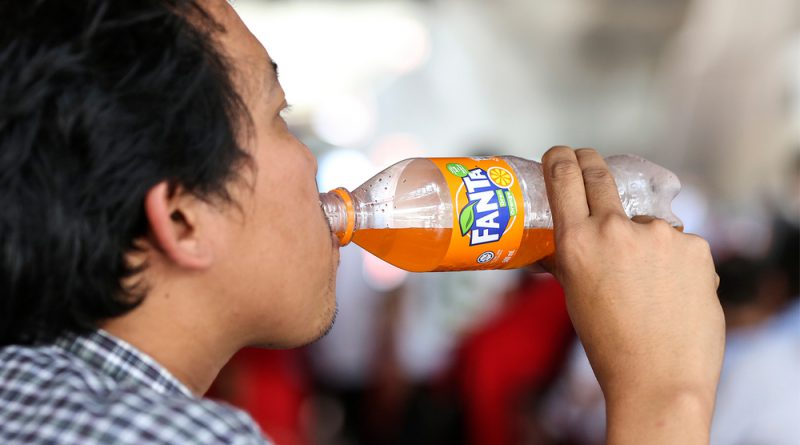Soda tax: Will it hurt the poor and how high should it be?
KUALA LUMPUR, Sept 5 — While Putrajaya mulls introducing a soda tax to fight Malaysia’s obesity problem, concern has been raised about its socio-economic impact on the poor who form 40 per cent of the population.
Galen Centre for Health and Social Policy’s CEO Azrul Mohd Khalib said the poor may be driven to use up more of their wages if such beverages are taxed, given the limits in choices due to their income levels.
“As those in lower-income households spend a significant proportion of their income on soda as a source of cheap energy and treats, they will be affected.
“With healthy options still expensive and less affordable, they might be forced to spend more rather than cut back,” he told Malay Mail.
A misconception?
But the Academy of Sciences Malaysia (ASM) also highlighted the “common misconception” of soda tax harming the poor, saying that a comprehensive study published this year in medical journal The Lancet had dispelled such a “false notion”.
“The analysis found that individuals from poor households are more likely to suffer from the morbidities associated with obesity-related non-communicable diseases and the catastrophic healthcare costs.
“There is strong evidence showing how taxes on unhealthy products actually have the potential to produce the greatest health gains amongst the poor households,” the academy said in an emailed statement to Malay Mail.
ASM also cited the example of Mexico which has high obesity rates, noting that a March 2017 study by researchers from the University of North Carolina in the US and Mexico’s National Institute of Public Health found that the purchase of sugary drinks fell by 5.5 per cent and a further 9.7 per cent in the first and second year of the tax after it was introduced in 2014, with the highest decline among impoverished households.
“Though the findings have not shown any direct reduction in obesity rates, the change in consumption behavior is likely to bring a positive impact,” ASM said of the Mexico example based on the first two years.
“Evidence from the UK case study show that high taxes on soft drinks with high sugar content may result in the poor switching to drinks with low or zero sugar drinks,” it added, referring to an August 2016 Oxford Economics research on the UK soda tax impact that was commissioned by the British Soft Drinks Association.
Based on the UK example, ASM fellow Professor Mahendhiran Nair said a soda tax could potentially negatively affect employment in the drinks manufacturing industry and reduce tax collection from the industry.
However, he believes this may not necessarily be so, as the beverage industry may be able to replace its business source with higher demand for low or zero-sugar drinks that would be exempt from the soda tax.
“Overall, the switch from high sugar content drinks to low or zero-sugar content drinks will reduce the incidence of diabetes and other ailments. All of which will have a positive spillover impact on the health of the citizens and reduce the cost of healthcare in the country,” he told Malay Mail.
ASM added that Malaysia would benefit if the government invests revenue from the soda tax in health prevention and wellness programmes. A healthier population can significantly contribute towards the country’s economic growth.
Savings for health and passing on tax
Emeritus Professor Dr Mohd Ismail Noor, president of the Malaysian Association for the Study of Obesity, noted that the poor tend to consume more sugary drinks and suffer more from obesity and diet-related illnesses such as diabetes compared to higher-income groups.
“The costs of these diseases (treatment costs, loss in productivity, loss of quality of life, family members providing care) are also a heavier burden on lower-income households compared to higher-income households.
“Because lower-income consumers are more responsive to price increases, they will reduce their consumption of sugary drinks more than will higher income consumers. Thus, they will benefit more in terms of health outcomes and the costs of health care,” he told Malay Mail, adding that those who stop buying sugary drinks will then save money and have more to spend on healthier food.
As for how such a tax would affect sugary drinks manufacturers, Dr Mohd Ismail said research has shown that these profit-oriented companies generally do not absorb the tax but instead pass it down to consumers, such as in Mexico where the price increase matched the tax amount.
“Beverage manufacturers’ revenues actually rose in spite of a decline in sugary drink consumption,” he said of the examples in other countries.
He noted that the problem of obesity in Malaysia is at crisis level as over half of the population are either overweight (13.3 per cent) or obese (38.5 per cent), while currently 73 per cent of deaths annually are due to non-communicable diseases and often those linked to obesity.
Pointing out that sugary drinks lead to obesity and is a major cause of increase in risk of health problems such as heart diseases and diabetes, he acknowledged that there is no silver bullet to solve the global obesity problem but went on to say that the World Health Organization-supported soda tax has been shown to cut consumption.
“There is no reason to delay the introduction of one of the most effective and easily implemented interventions when we know it will improve health and save lives,” he said, adding that a comprehensive approach including marketing restrictions and front-of-package labeling was needed to address obesity.
How high should soda tax be in Malaysia?
Three think tanks that Malay Mail spoke to supported the taxing of drinks manufacturers instead of imposing the tax at the point of sale.
They also backed a graded multi-tier tax model as used in the UK and Thailand, where the tax rate depends on the sugar content levels in the drinks.
ASM, which also supported taxing manufacturers, similarly proposed a graduated levy such as the version used in the UK, where a lower tax of £0.18 (RM0.95) per litre is imposed on drinks with 5g-8g of sugar per 100ml and a higher tax of £0.24 (RM1.27) per litre is imposed on drinks with over 8g sugar per 100ml.
“The British tax model is designed to not only decrease public consumption of sugary drinks but also incentivise manufacturers to reduce the sugar in the products,” it said, adding that it is best that the Finance Ministry and the Domestic Trade and Consumer Affairs Ministry discuss the tax rate.
Penang Institute’s Socio-Economic and Statistics Programme highlighted Thailand’s model of a graded excise tax where drinks with higher sugar content per 100ml are taxed higher, and also where the increase in the tax rate every two years encourages producers to reformulate their drinks and reduce the sugar content to avoid paying more tax.
“This would be a good model for Malaysia to follow in the consideration of implementing a soda tax,” it said.
Galen Centre’s Azrul said Malaysia should determine its own suitable tax rates by carrying out proper studies and consultations, adding that the tax collected should go to programmes dealing with non-communicable diseases such as diabetes and also risk factors like obesity.
Beyond taxes
The same think tanks advocated for more education and awareness programmes for Malaysians, and to start early by making sure children eat healthy.
Galen Centre’s Azrul said Malaysia should enforce healthy food standards in schools and hostels nationwide to improve the nutrition of food served to Malaysian schoolchildren, saying 15 per cent of them are now obese.
“We need to ensure that our children actually have healthy school meals,” he said.
Penang Institute proposed that the government promote a healthy and less sedentary lifestyle from as early as childhood through refining school programmes to include more physical activity, and by making more public parks available.
ASM cited an October 2017 joint workshop on obesity together with the UK’s Academy of Medical Sciences, noting that various recommendations were identified then such as banning junk food and high-sugar drinks from school canteens, giving equal emphasis to sports and academic excellence in schools, removing subsidies on cooking oil and flour, as well as tax exemption as incentives for healthier lifestyles.
Institute for Democracy and Economic Affairs CEO Ali Salman acknowledged that the soda tax idea was mainly motivated by consumer healthcare, but said Malaysia certainly “cannot tax our way to a healthy nation”.
“Our choices of food and beverages are shaped by our personal preferences, awareness, life style, economic conditions and availability of substitutes,” he told Malay Mail.
Taxes can play a deterrent role, but the outcome will depend on many other factors that are not in the government’s direct control, he noted.
He said the government should adopt a two-tier policy of encouraging companies to work on substitutes and educating consumers about the consequences of excessive use of sugar, instead of resorting to a soda tax.
Source: MalayMail




